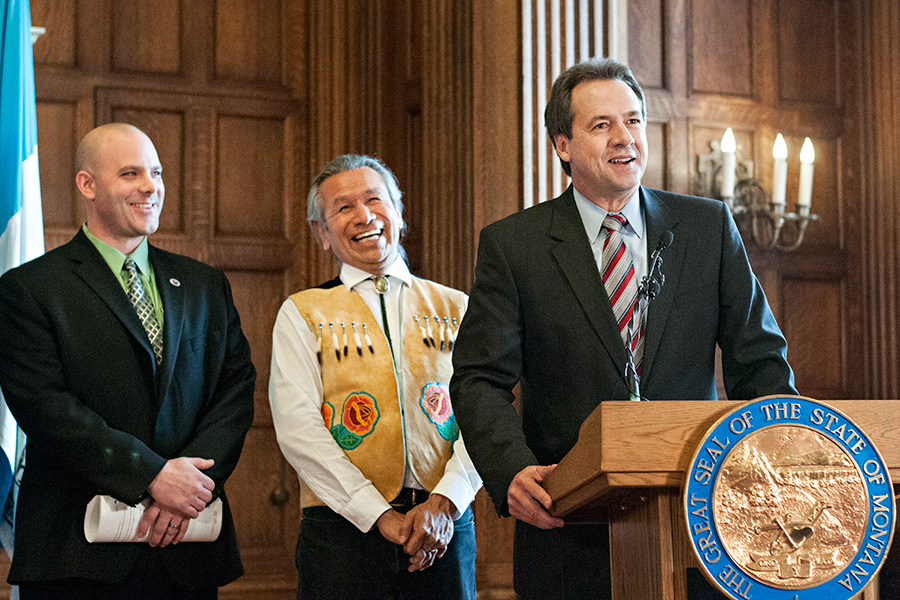The Montana Supreme Court this week upheld the Confederated Salish and Kootenai Tribes’ hard-won water compact, ruling that the legislatively approved water rights measure is constitutionally intact.
The bill ratifies a water rights deal between federal and state governments and the CSKT that took more than a decade to negotiate. The complex measure quantifies and defines the federally reserved water rights for the tribes and includes protections for those with existing rights, affecting water use on the Flathead Indian Reservation and throughout western Montana.
The compact, which has been at the center of a tumultuous political battle for decades, received the Montana Legislature’s approval in 2015, a decision that was legally challenged by the board that oversees irrigation on the Flathead Indian Reservation.
In its Nov. 8 decision, the high court ruled against the Flathead Joint Board of Control, overturning a district court’s 2016 decision that contending a portion of the compact was unconstitutional and required a two-thirds majority approval.
The decision by Chief Justice Mike McGrath confirms the constitutionality of both the compact and the legislative procedures ratifying it under the Montana State Legislature.
CSKT spokesman Rob McDonald said the tribes were “completely satisfied” by the ruling.
“This court ruling is a testament to the hard work of the parties in negotiating a fair and robust framework for water use on the Flathead Reservation and the State of Montana,” McDonald wrote in an email. “Not only did the court uphold the compact, it specifically recognized the expensive, protracted and uncertain litigation the compact avoids. Undoubtedly, the court recognized the significant concessions made by the Tribes to achieve settlement. We look forward to continuing to work with Montana leaders, farmers, ranchers and other water users to obtain swift ratification by Congress.”
Supporters say that failure of the compact would result in a deluge of litigation by the tribe over their water rights in the state Water Court, which would cost the state millions of dollars to defend.
In reaction to the ruling, an organization of irrigators called the Farmers and Ranchers for Montana (FARM) praised the high court’s ruling.
“The decision of the Montana Supreme Court to uphold the constitutionality of the Compact speaks to the thorough and thoughtful construction of this critical agreement,” FARM spokesperson Shelby DeMars stated in a news release. “After more than a decade of negotiations, the resulting settlement will protect existing water rights, prevent decades of costly litigation and invest in critical infrastructure in our state.”
Proponents of the Flathead compact include Democratic Gov. Steve Bullock, Republican state Attorney General Tim Fox, tribal leaders and several of the state’s major agriculture groups — a boon when it came to passage at the state legislative level.
Despite its approval by the state Legislature, the compact is still awaiting congressional approval prior to implementation.
